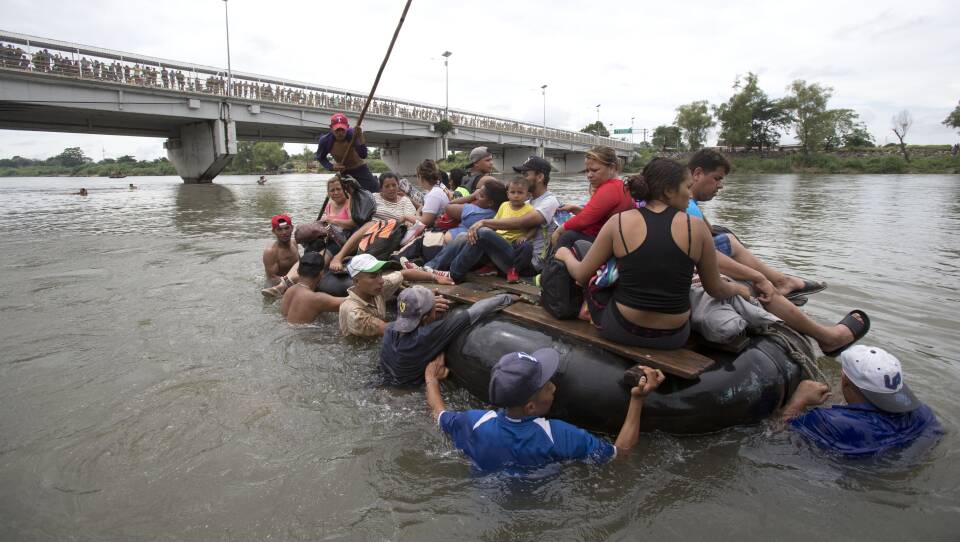A growing crowd of Central American migrants is resuming its advance toward the U.S. border in southern Mexico on Sunday. The advances have overwhelmed Mexican officials' attempts to stop them at the border.
The Associated Press reports that the numbers swelled to about 5,000 overnight.
On Saturday, President Trump told reporters that these migrants "hardened criminals."
With the November midterms less than three weeks away, Trump has become more vocal about the border crisis.
At an election rally on Friday in Arizona, a state bordered by Mexico, he told thousands of supporters, "Democrats want to throw your borders wide open to criminals. I want to build a wall."
Reporter James Frederick was at the border and spoke to NPR's Lulu Garcia-Navarro on Sunday. He observed officials stopping migrants from crossing the bridge that stretches over the Suchiate River, which is the legal crossing into Mexico. Mexican Federal Police, however, did not stop those migrants who crossed the river into Mexico by swimming or by using a raft.
Several hundred migrants had already applied for refugee status in Mexico and an estimate 1,500 were still on the Guatemalan side, hoping to enter legally.
It has not been clear where the additional travelers had gathered from, since about 2,000 had been gathered on the Mexican side on Saturday night. The number, however, may be misconstrued since people have been joining and leaving the caravan daily.
Migrants marched on through Mexico shouting slogans like "Si se pudo!" or "Yes, we could!"
Many of these migrants are fleeing poverty and violence.
At the border, a woman named Maria tells James, "It was our decision."
"We asked for people to give us rides, we sold the little we had to come," she added. "I'm doing this for my daughters and granddaughters."
James tells NPR that people at the border say they'll do whatever is asked of them, as long as they aren't send back to Honduras.
The decision to form a migrant caravan came after some migrants have up trying to enter Mexico legally because the asylum application process was too slow and most consider the U.S. as their final destination is the U.S., where Trump says he will close the border on them.
"They're not coming into this country," Trump said at the rally.
Samuel, a 40-year-old Honduran traveling with his wife and three sons, tells James that he hopes Trump will change his mind.
"I believe Trump's heart may still be tender and one day he will feel peace and happiness and do good for us. He won't regret it," Samuel said.
Copyright 2018 NPR. To see more, visit http://www.npr.org/.




